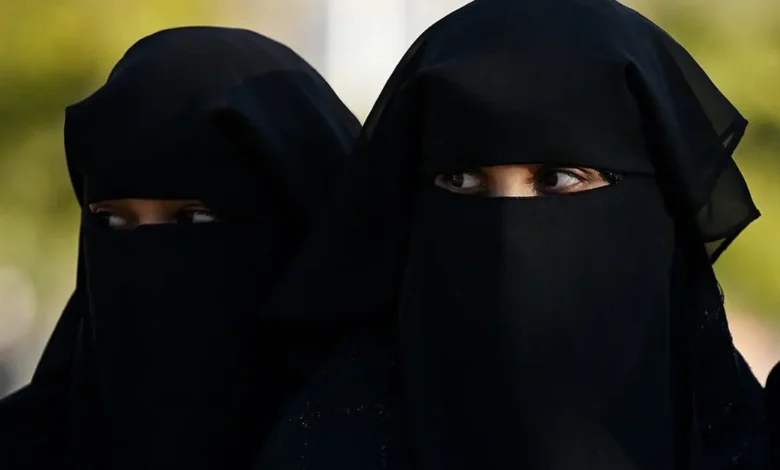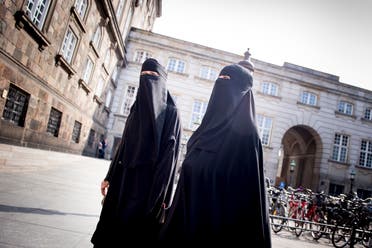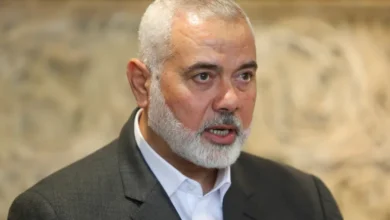Egyptians divided opinion on recent niqab ban in schools

Egypt’s education ministry’s decision to prohibit female students from wearing a niqab or face covering in schools has elicited a mixed response from the Egyptian society.
Education Minister Reda Hegazy issued a statement earlier this month, saying that students have an “option” to choose if they want to cover their hair in school, as quoted by the state-run Akhbar al-Youm newspaper.
The statement, however, added that the hair covering or veil cannot cover the student’s face.
“Any form of hair covering that contravenes the condition of the face being visible is not acceptable and the hair covering should be in the colour chosen by the ministry and local education directorate,” the decree further said.
This new dress code is set to be enforced from the start of the new academic year on September 30 and will remain in force until June 2024, applicable in both public and private schools.
Hegazy’s announcement has elicited a mixed response from Egyptians.
According to Ezzat Ibrahim, spokesman for Egypt’s National Council for Human Rights (NCHR), who spoke in support of the ban, imposing a specific dress code is a “stark infringement upon human rights and the fundamental right to choose.”
Ibrahim further said: “It (niqab) imposes a culture of suppression within a society grappling with surges of intellectual and religious rigidity.”
He added: “The focus should be on recognizing the full rights of young women and treating them as individuals with complete agency, rather than as diminished in intellect and cognition.”
According to the education ministry’s statement, it is up to a student to decide if she wants to cover her hair or not “based on her own personal desire without any pressure or force from any other entity other than her parents” – in reference to local religious groups and movements.

Alexandria Kinias, the founder and CEO of Women of Egypt Network, who also agreed with the ban, said that most Egyptians support the decision and the outrage has mainly been from “extremists” who are trying to tarnish the government’s image.
“The vast majority of Egyptians agreed and supported the ban. It only sparked outrage among extremists. They are the ones who found it oppressive and led the virtual resistance,” Kinias, an advocate for women empowerment, said.
“Extremists were encouraged by anti-government trolls who politicize such news to turn people against the government, and in so doing, they aim to tarnish the government’s image in the West. But to the disappointment of both, their cacophony faded away as fast as it started,” Kinias added.
‘Cost of telling people what to wear’
According to Yomna Ghanem, banning the niqab may be an extreme solution. While she agreed with the security aspect of the ban – removing face covering will help schools to efficiently monitor people going in and out – she said that the government could do so by creating “checking stations” managed by women to ensure students’ safety.
“I understand checking stations can be costly, but it is less than the cost of telling people what to wear, especially in a dominantly Muslim country. If someone wants to be more conservative or modest, they should be able to dress the way they like,” Ghanem said.
Those opposed to the ban say that it is an infringement upon an individual’s right to dress the way they want, and the government must not interfere with such personal choices.
“As long as a student fulfills her duty and dresses properly, whether wearing a niqab or a hijab, it is her business, and it is a matter that pertains to parents and not the school or the media,” Dr. Hassan Shehata, education expert and professor at Ain Shams University in Cairo, said.
“The government does not have the right to interfere with how people dress or whether they wear a hijab or a niqab. That decision violates human rights and will lead to other problems,” he cautioned.
The hijab, which is a veil that covers a female’s hair but not the face, is worn by many women in Egypt.
There has been an ongoing debate in the wider Egyptian society over wearing a niqab in public spaces and educational institutions. Some educational institutes have imposed their own bans on niqab in the past.
In 2015, Cairo University banned the niqab for its staff members, which was later upheld by Egyptian courts in 2016 and 2020 despite numerous appeals.










